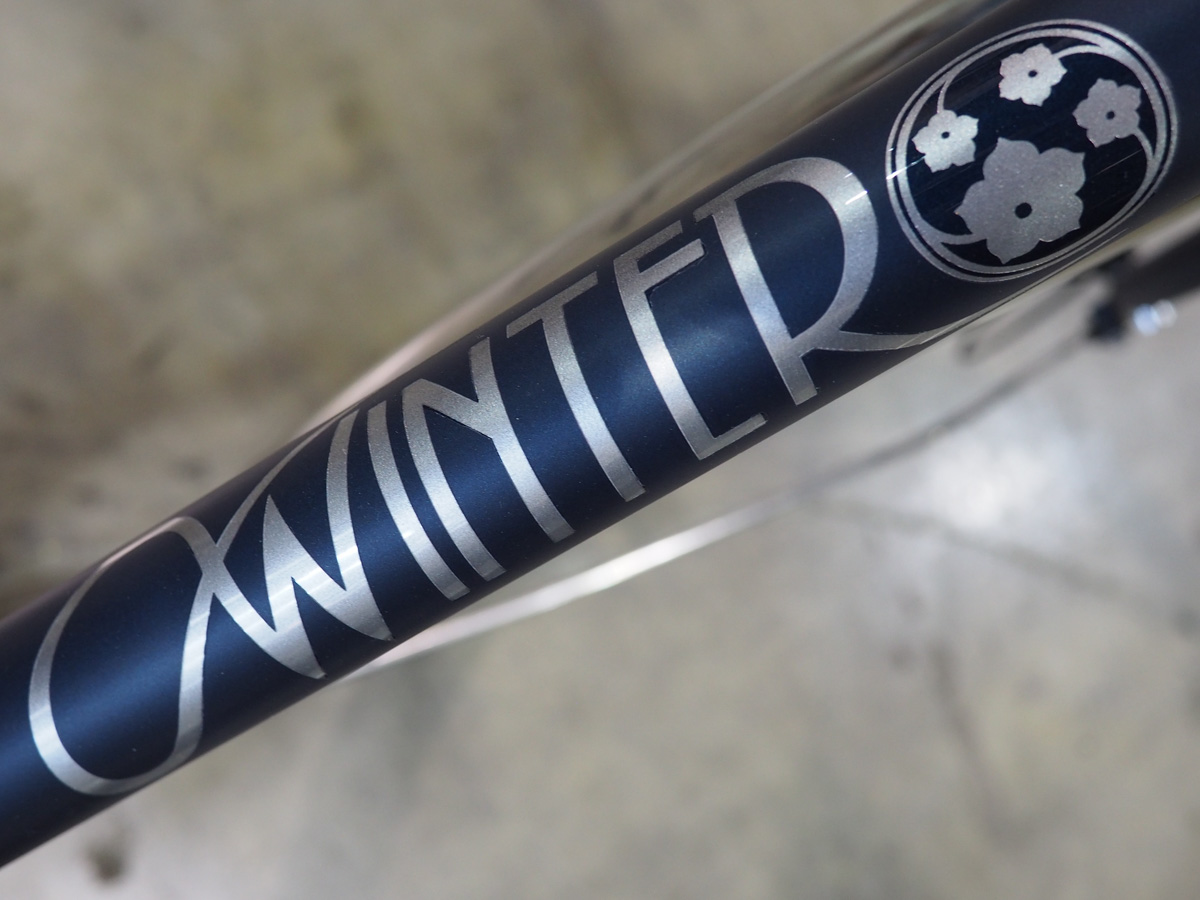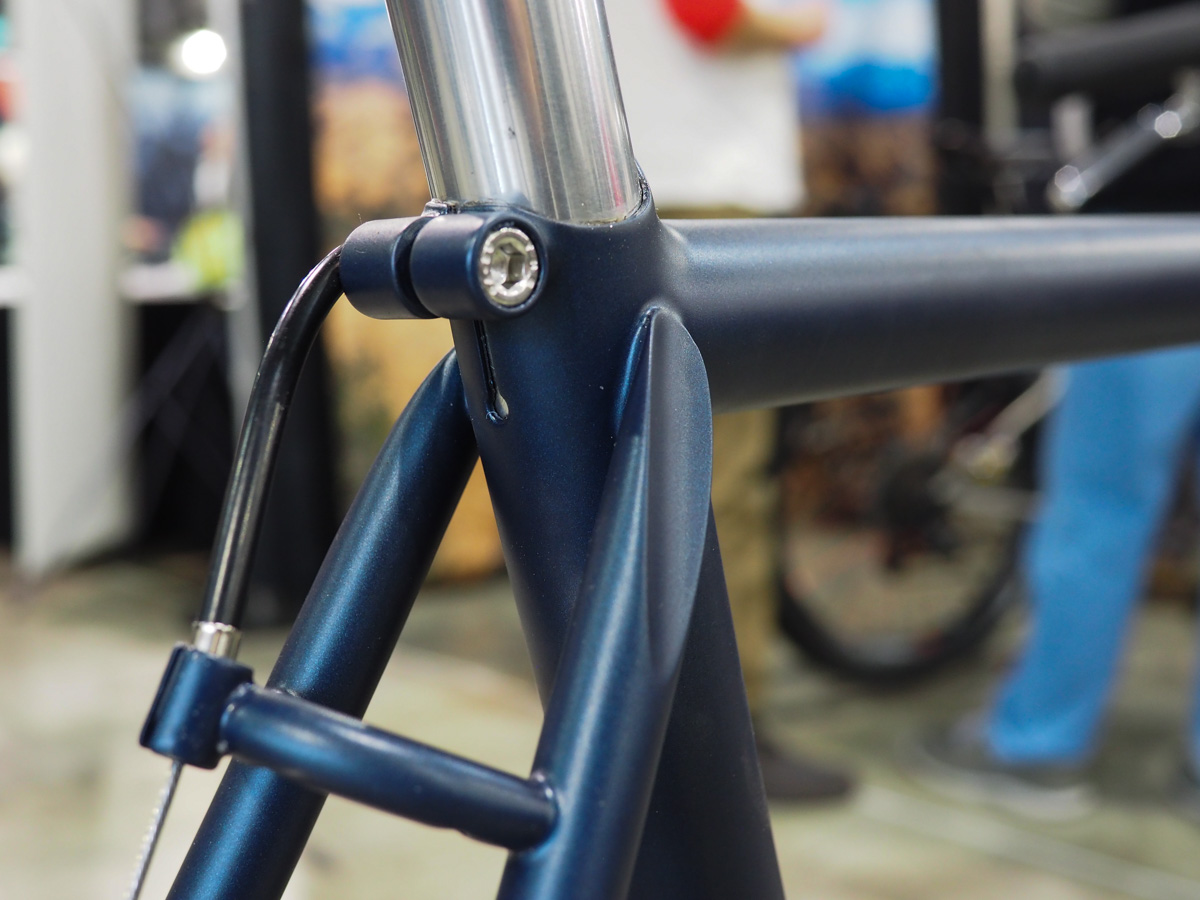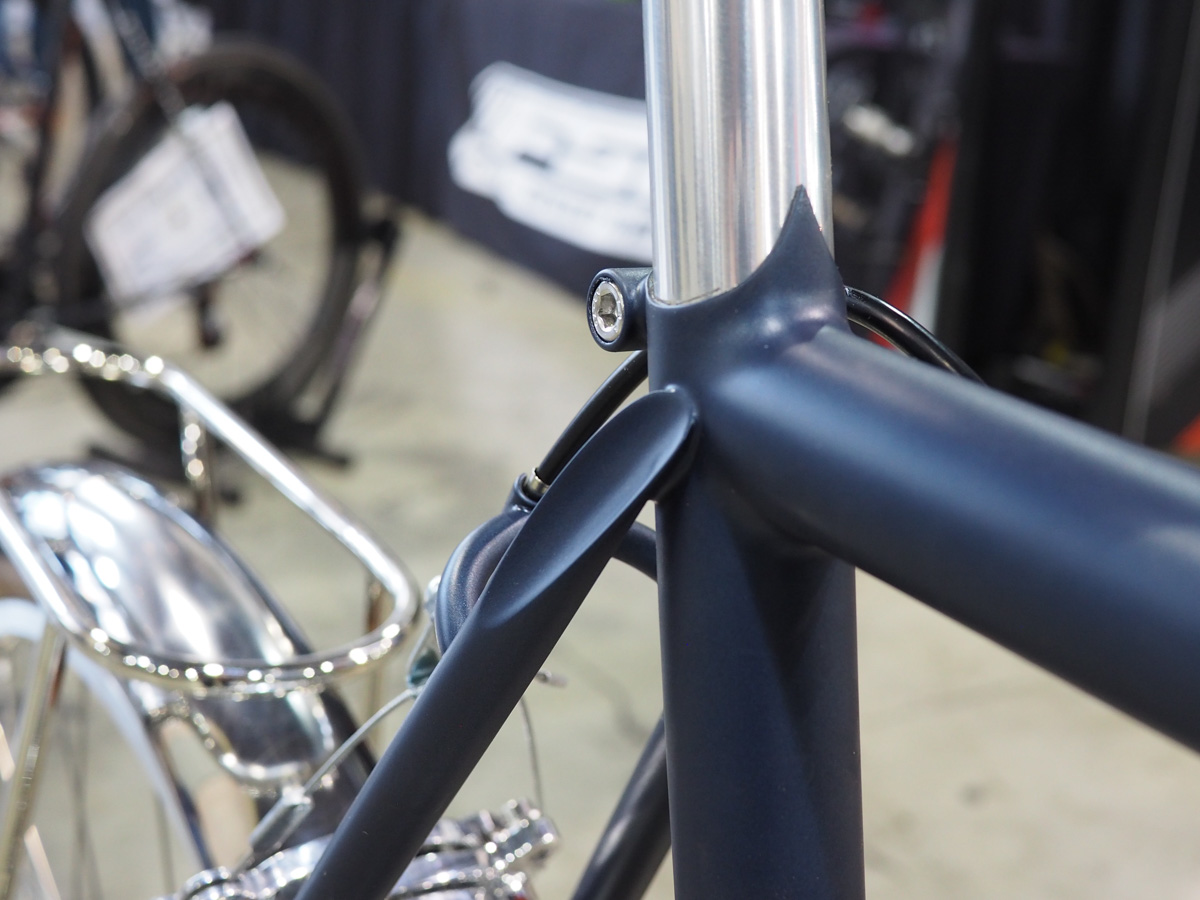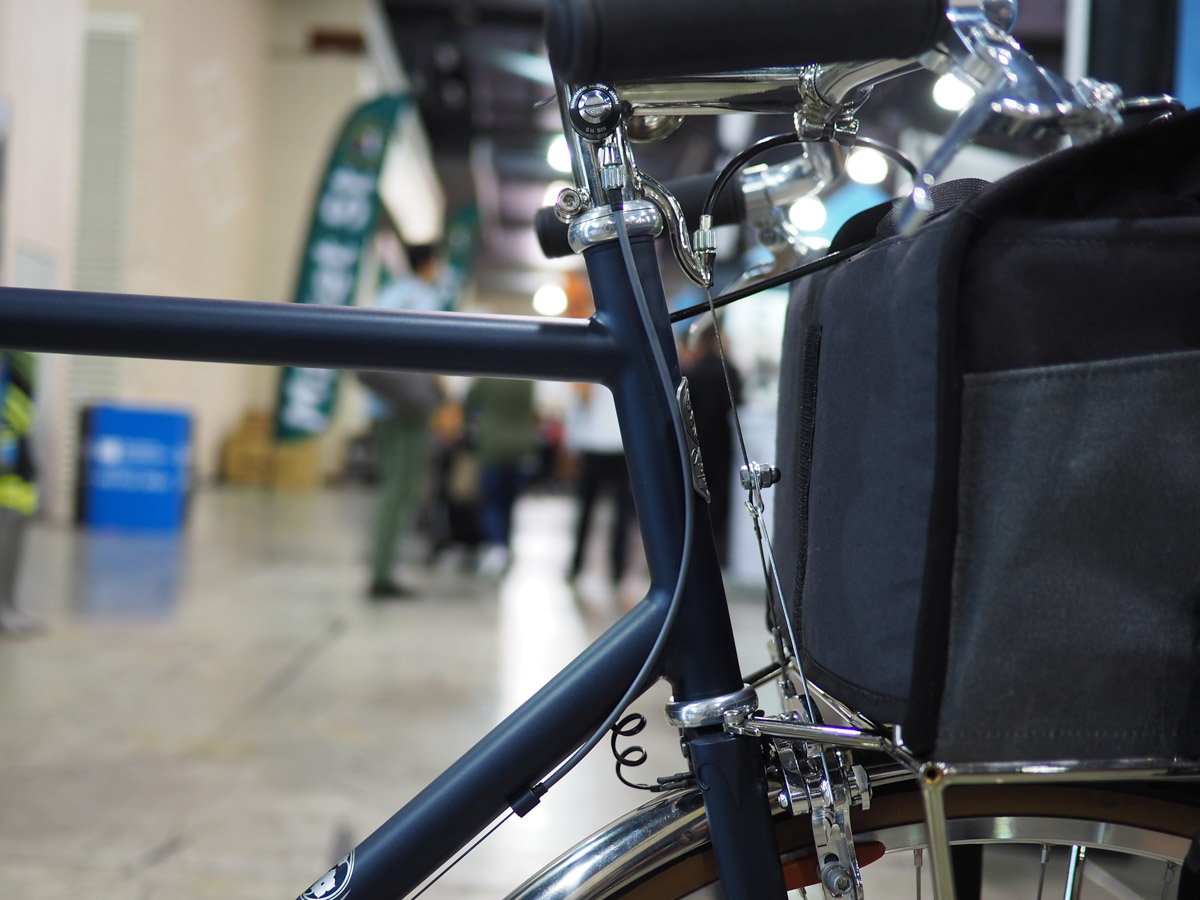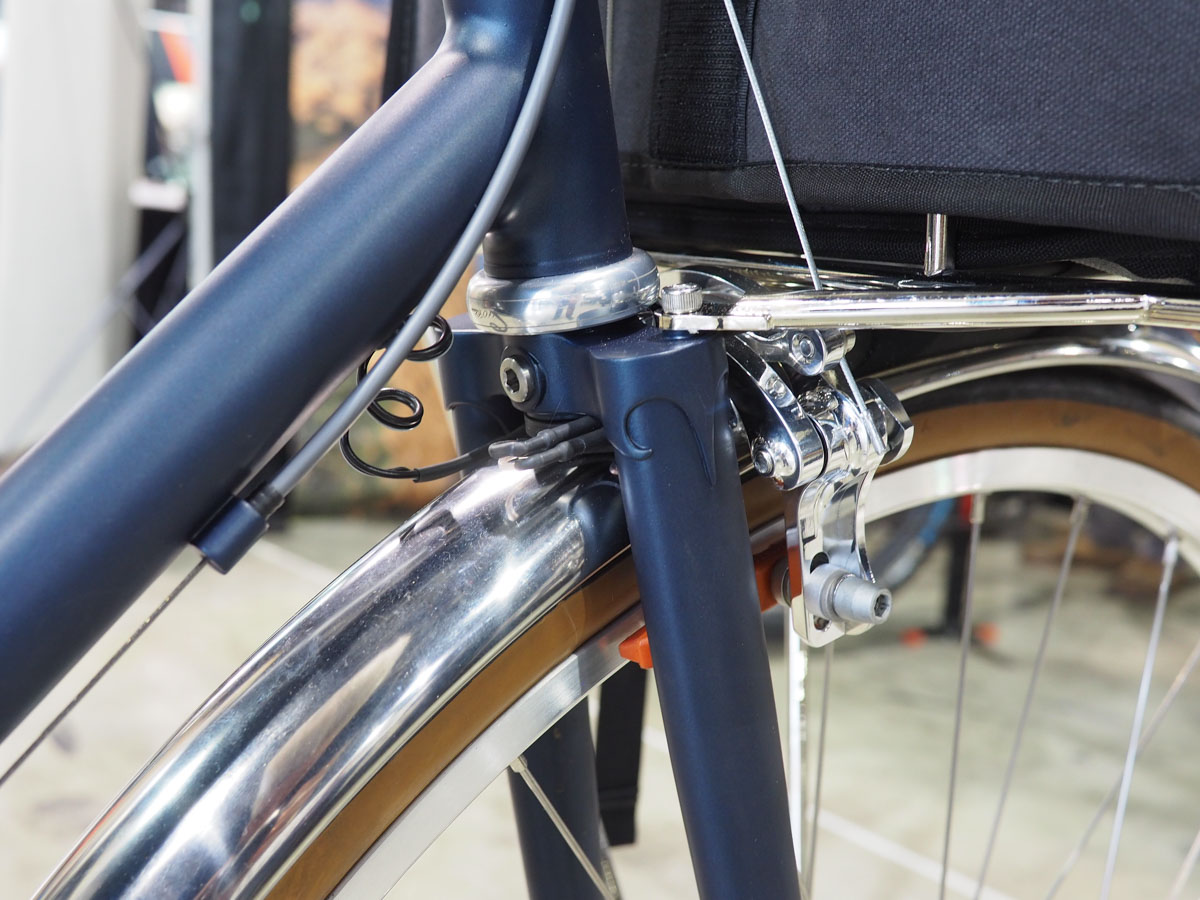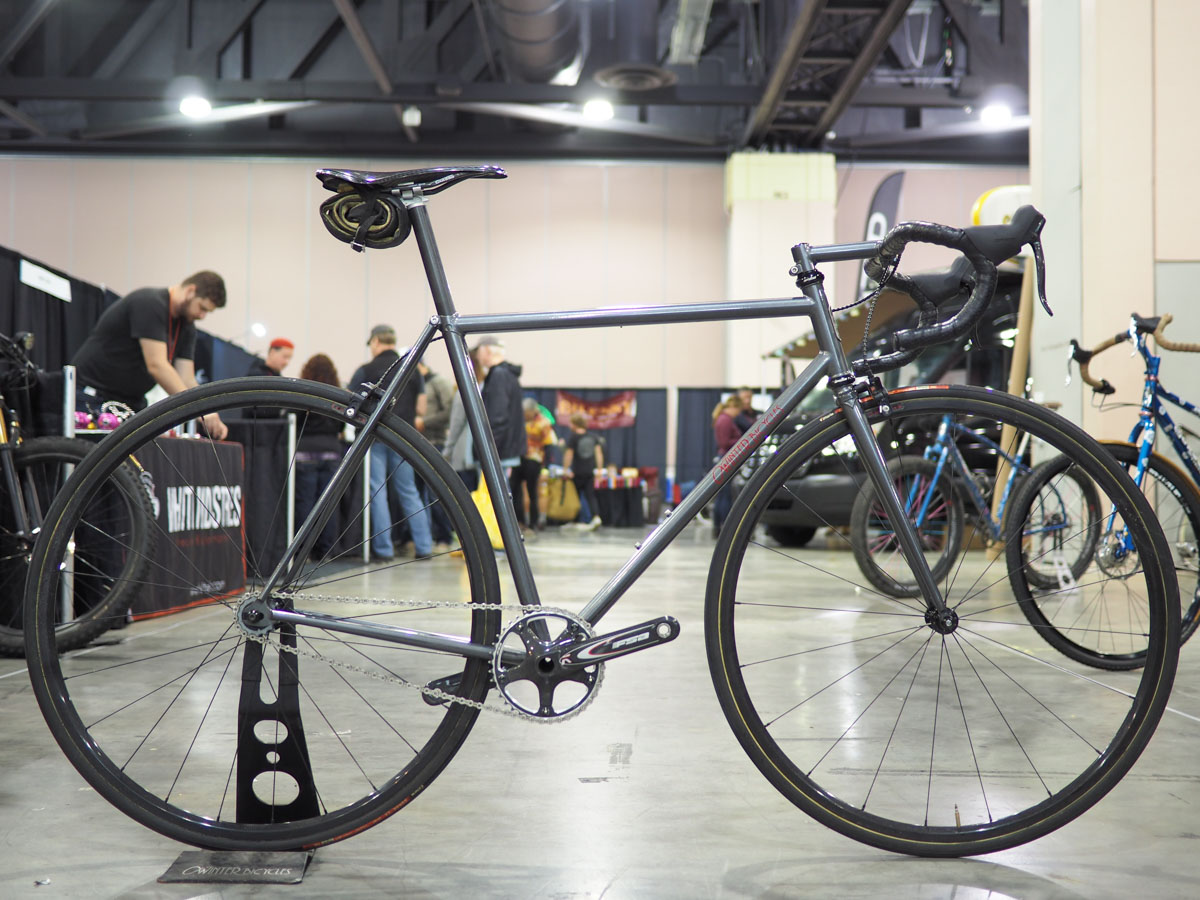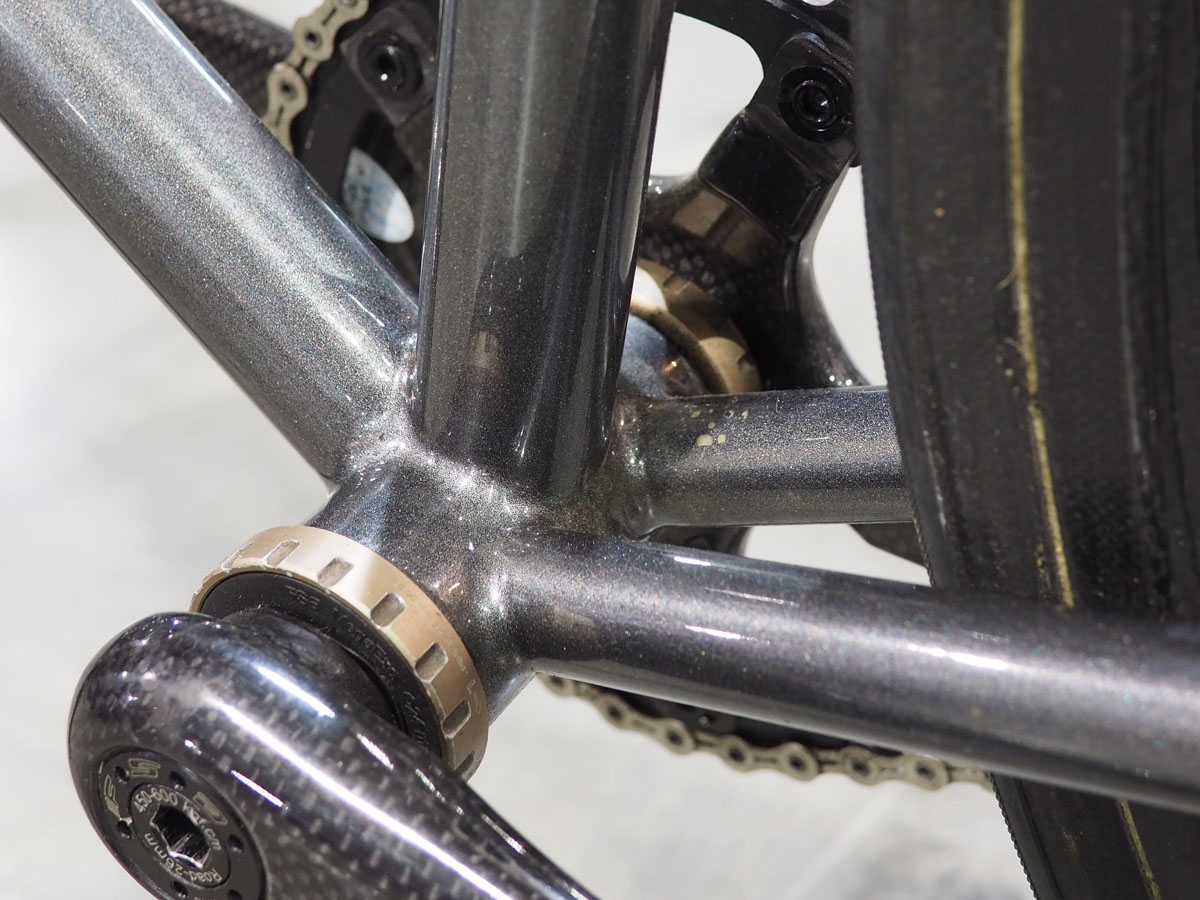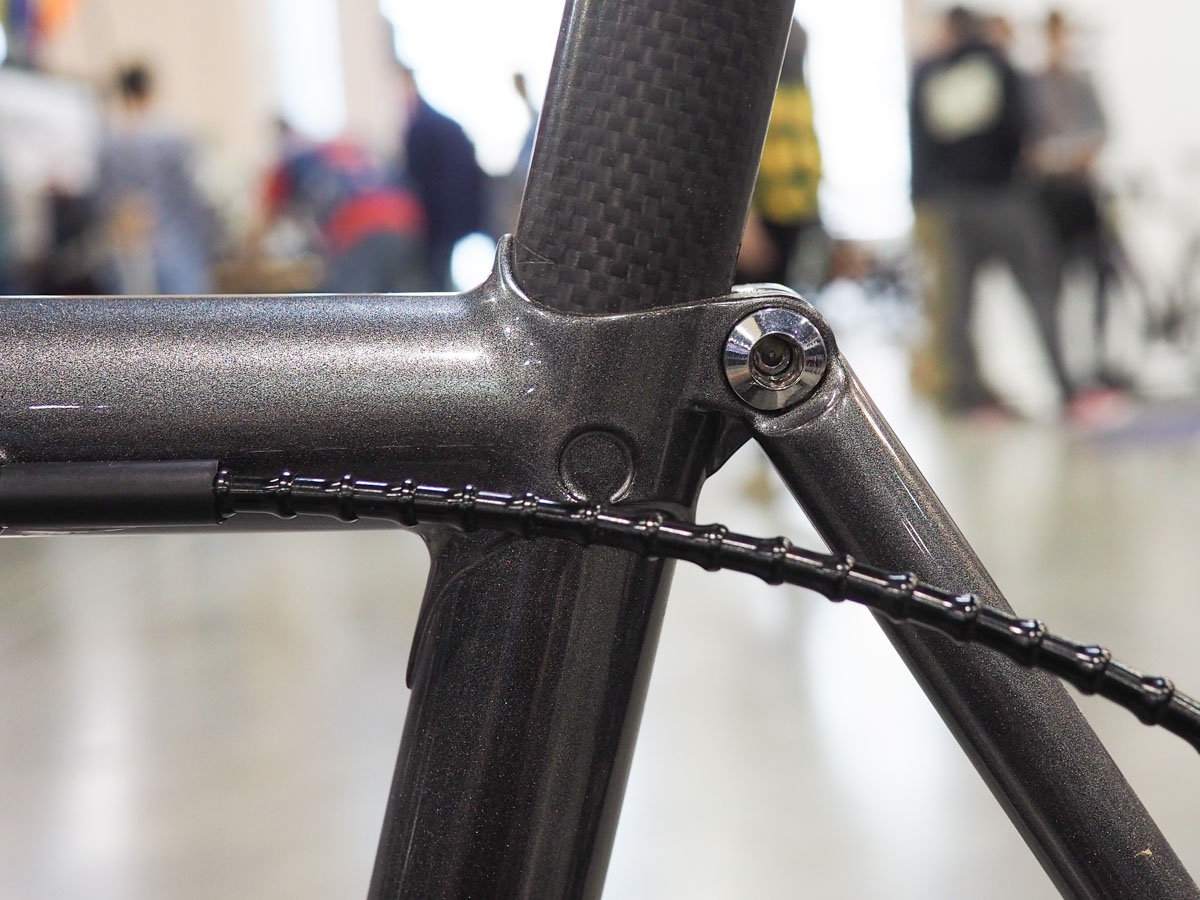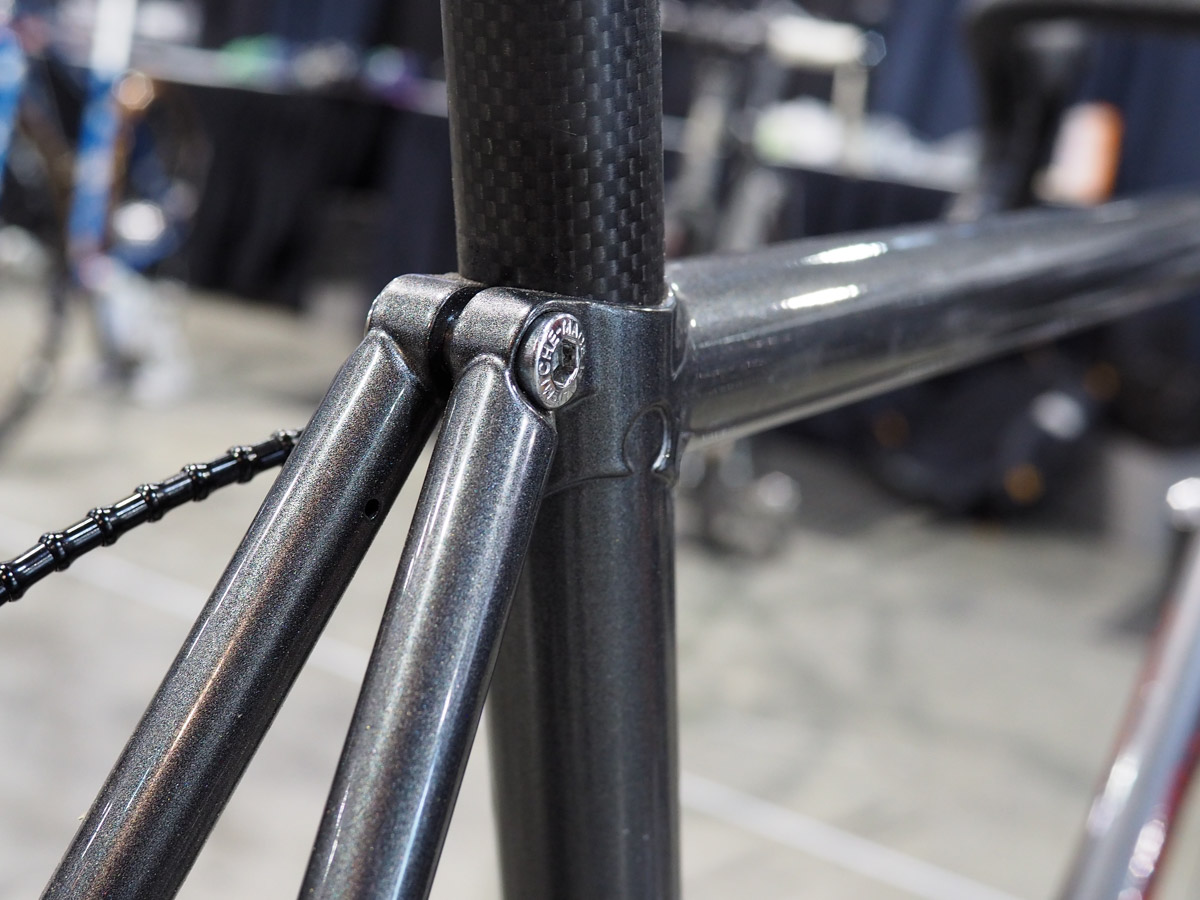While digging into the bikes at the Winter Cycles booth at Philadelphia Bike Expo this year, the words “brutal intentionality” kept coming to mind. Builder Eric Estlund is part tailor, part surgeon in how he relentlessly executes and implements theme and function with equal importance in his deeply custom bikes. It can be exhausting to go over his bikes for this reason – when he does go deep, the depth of detail and influence can be overwhelming (his track bike last year was an excellent example of this). With his wheelhouse being solidly in the highly complex and integrative randonneuring realm, what’s most striking is how effortless this detailed execution seems to be over the full system of the bike.
The show pony of the Winter Cycles booth was a blue porteur named “Livreur,” a French term for “delivery man” (because Eric’s bikes are often named, like swords). As an interesting contrast to this city bike, Eric brought a personal bike – one he designed and built around a specific mid-day ride he used take from his old shop.
This highly integrated porteur bike was designed and built for a customer out of the Bay Area. He wanted a fairly traditional fillet brazed porteur bike for every day use. As the rider has a background in road racing, he wanted a fairly zippy geometry.
It is dripping in high-polish, including a slew of very shiny PAUL Components levers, crank, and brake calipers.
The long, scooped caps at the seat cluster are vintage 60’s Cinelli cast top eyes to fit with the continental theme.
“I almost always use top eyes. A lot of these bikes, because they are being loaded with racks and things- I’ve never seen a well done top eye fail from a rack load. I’ve seen seat stay caps flex off. For me, just having a solid metal connection there is just a better functional choice.”
The stem is made by Winter for this bike also. It is chrome plated with integrated accommodations for a shifter boss, drop hanger, and bell mount (with the bell plated to match). “If you look at the stem alone, in your hand, it has a lot going on. In isolation, it’s very busy. But as part of the complete bike, it really cleans up the whole front end, it solves a lot of problems.”
The front end and cockpit are disarmingly clean and clutter-free. It actually looks and feels like a much simpler build than it is in practice.
It features integrated front and rear generated lighting. On the rear, while the Schmidt dynamo lighting kit runs stealthily through the side seams of the fenders, there are electrical couplings located at critical front and rear junctions to allow easily removal if racks and fenders are not appropriate to the type of riding being done.
This bike was designed for a 25 to 30 mile loop Eric liked to ride at lunch at his former shop, one mostly through farmland with a few quick climbs (because if you are a frame builder with a favorite loop, why wouldn’t you build a bike around it?).
While the construction is “stripped down” compared to his typical builds (his build list is dominated by randonneurs) it is, in Estlund fashion, much more complicated than it looks. The fork crown, for example, had a socket design Eric liked but was designed around a raked blade design. Rather than choose a different crown, he deconstructed and rebuilt this one to work within a straight blade design.
While it is a personal bike, he maintained that this is something he would make for a customer if this is what was requested – no short cuts or experiments for himself.
Yobi specially made the hub for this bike so he could match the chainline of an outer chainring position on a road crank.
The stays are straight, undersized, with no dimples. Classic diameter rear triangle and original over-sized tubing front triangle (it has a 28.6mm top tube rather than the typical inch top tube of his rando bikes).
The bottom bracket cluster fillet brazing is rough, unfinished. There are even visible pinholes in the joint – an option Eric says is open to customers if they ask, but most request the fully finished fillets of a typical Winter.
The seat cluster is the only part of the bike with any Winterian ornament – a single keyhole per side on the partial piece. Though the fillets are relatively small compared to normal Winter main triangle joints.
The seat stays hit the binder bolts- a configuration he enjoys doing in bikes with smaller wheel sizes. The binder bolt joint is left deliberately with hard transitions between the seat stay and seat lug – likely to keep with the minimalist and lightweight theme of the bike (big, smooth fillets tend to be much heavier and less efficient in this area of the bike).
